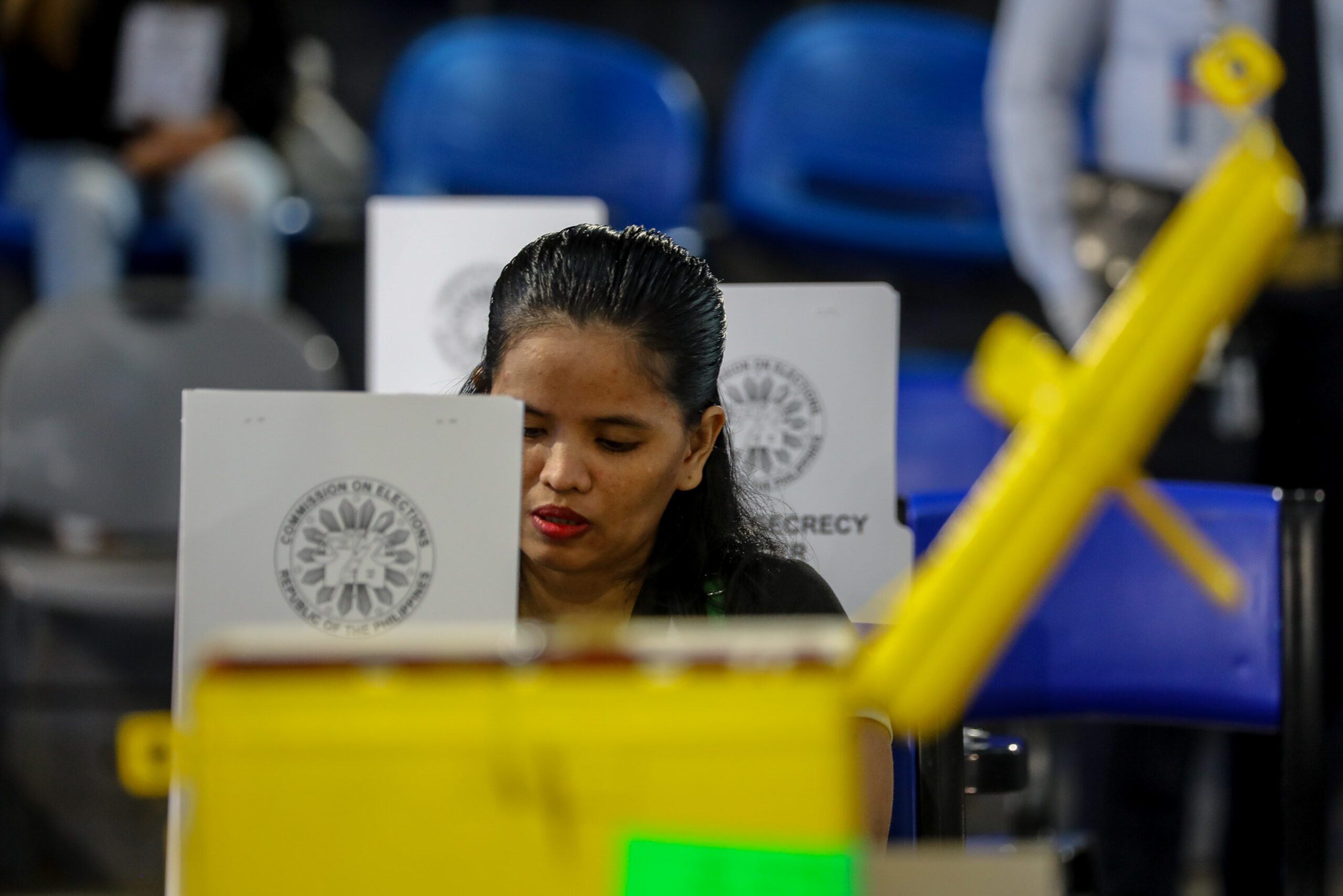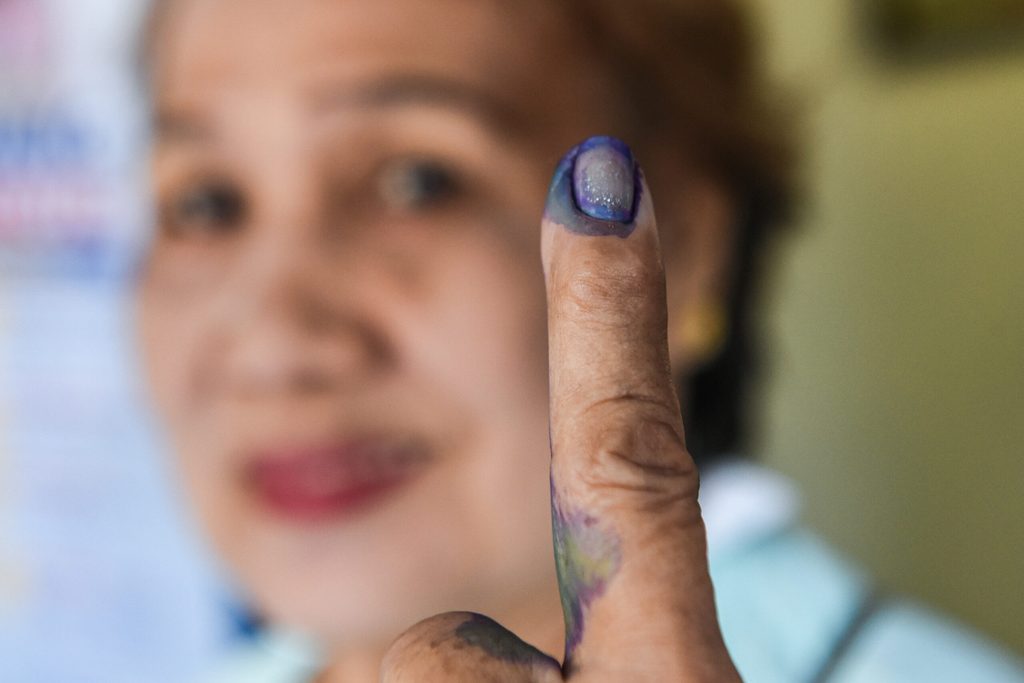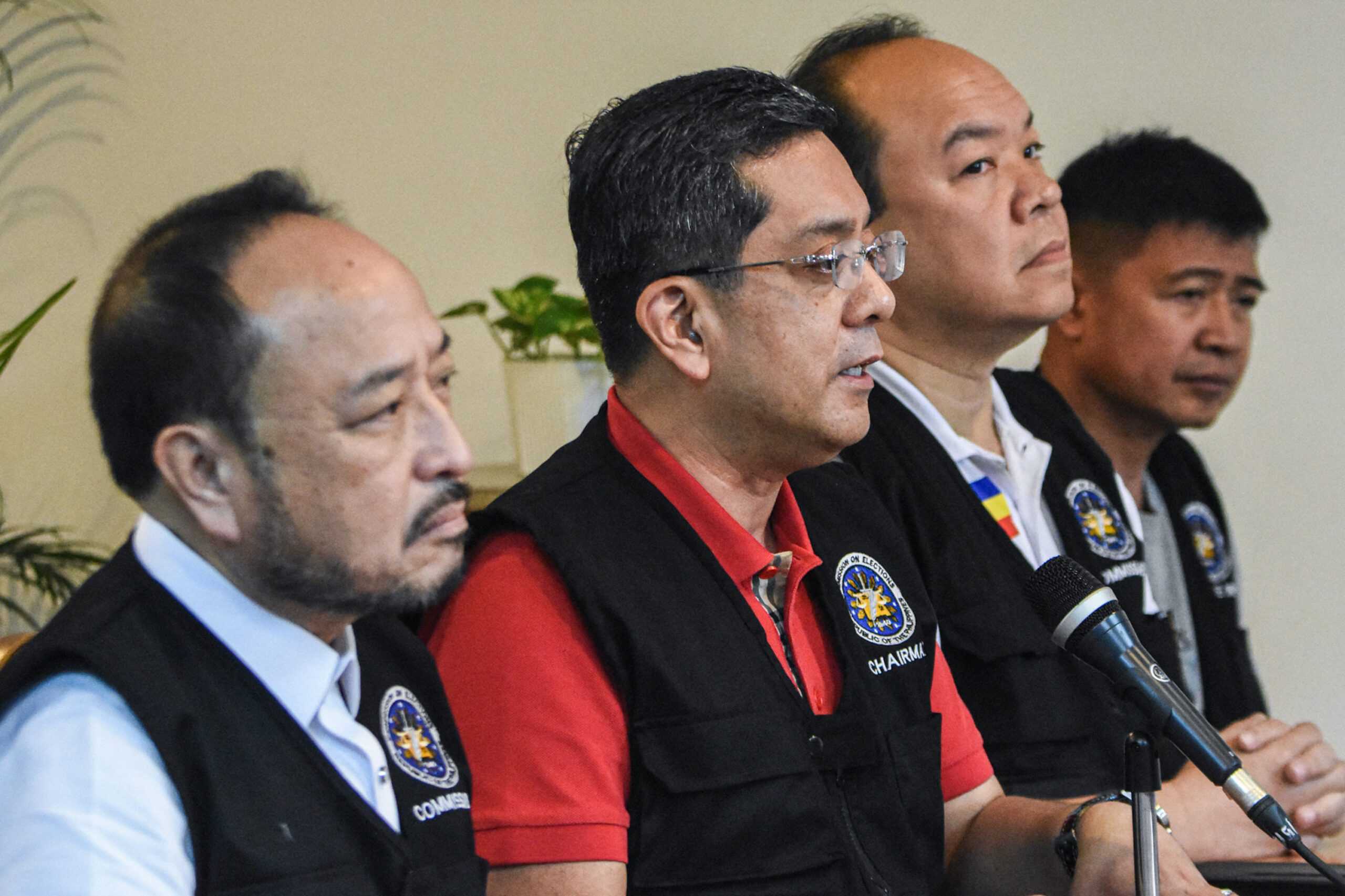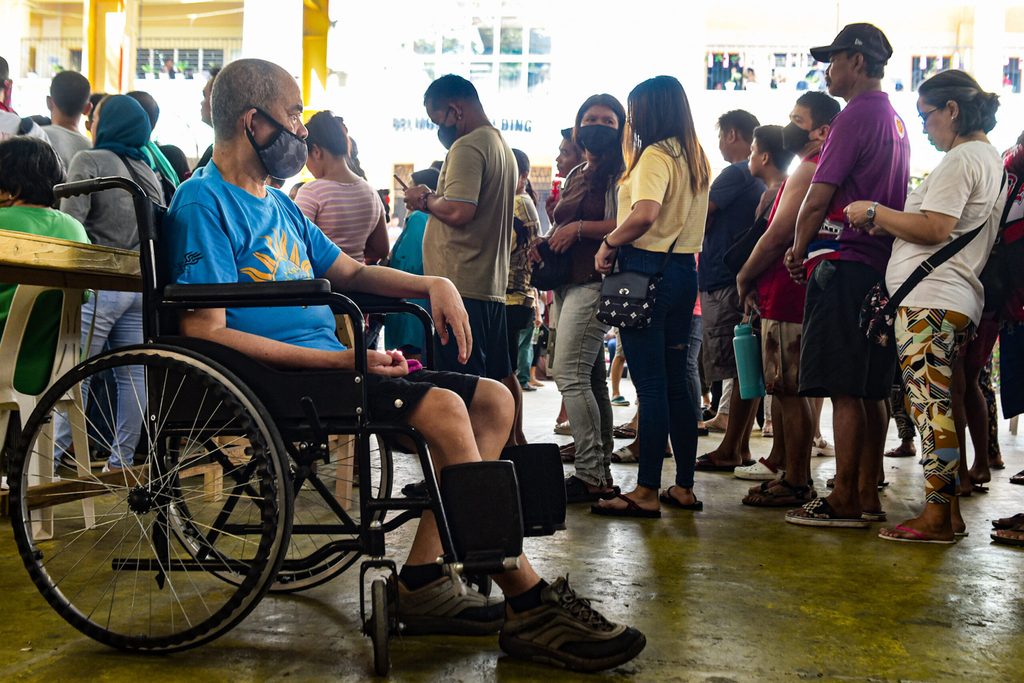SUMMARY
This is AI generated summarization, which may have errors. For context, always refer to the full article.

MANILA, Philippines – Its relevance may have been understated at times, but make no mistake, the 2023 barangay and Sangguniang Kabataan elections (BSKE) is significant in so many ways.
It’s the first BSKE in the Philippines in five years, the first large-scale poll conducted by the George Garcia-led Commission on Elections (Comelec), and the first nationwide election under a Marcos presidency.
The polls are over, canvassing has concluded in all 42,001 villages, and the turnover between outgoing and incoming officials has begun. There were hiccups here and there, but the commission believes the October 30 vote was a success.
More importantly, the election’s conduct and its aftermath are likely to cause ripples in the midterm polls scheduled in two years.

Marcos’ role
While the Comelec is independent of three main branches of government, President Ferdinand Marcos Jr. was not totally hands-off. His most significant contribution was signing into law the bill that rescheduled the electoral exercise once slated for December 2022 to October 2023.
Watchdogs decried the postponement, especially because it wasn’t the first time that it happened. The polls were supposed to be held in May 2020, but former president Rodrigo Duterte also moved to push back the date of the elections.
Veteran lawyer Romulo Macalintal challenged Marcos in the Supreme Court, and won. The High Court handed the President his first legal defeat in office. It said Republic Act No. 11935 was unconstitutional, and its enactment amounted to a grave abuse of discretion.
The landmark ruling came out in June 2023, which meant the postponement had already happened. The High Court nonetheless enumerated criteria so that elections in the future won’t be postponed for trivial reasons (after all, some lawmakers justified the postponement, saying that the country was still healing from the divisive 2022 presidential polls).
The Supreme Court also ruled that after 2023, the next village-based elections should be held in December 2025.
Election winners are left with a two-year term, shorter than the three-year term that barangay officials usually get.

Crackdown on election violators
Aspirants for public office were undeterred by the shorter term. The Comelec received 1.41 million certificates of candidacy this election cycle to fill in the 672,432 seats up for grabs. That was a 23% increase from the 1.14 million COCs submitted in 2018, the last time the BSKE was held.
The poll body – under past leaderships and in previous elections – faced mounting criticisms about alleged complacency, as candidates became more emboldened to campaign prematurely and buy votes.
From the get-go, Chairman Garcia wanted to send the message that the Comelec means business, and that his leadership is all about reforms.
The Garcia commission reinterpreted a 2009 Supreme Court ruling that took away the punishment for premature campaigning. The new Comelec said the doctrine that arose from that landmark resolution only applies to automated elections, not manual ones like the 2023 BSKE. It meant candidates wooing voters before the campaign period started could face repercussions.
The poll body also made a permanent Comelec committee – named Kontra Bigay – to go after vote-buying offenders. That panel essentially sought to simplify the process of lodging complaints, and removed bureaucratic bottlenecks that complicated the poll body’s crackdown efforts.
The commission has flagged 8,474 candidates for potential unlawful electioneering, and ordered them to submit an explanation. It also slapped disqualification petitions against 294 BSKE aspirants.
It remains to be seen if any embattled candidate – when all remedies in the justice system have been exhausted – will actually face the full wrath of the law.
“What is essential here is ensuring that these violators are held accountable for these election offenses,” said the Legal Network for Truthful Elections (LENTE), an election watchdog. “The continued failure to hold any person liable for vote-buying despite its widespread conduct has resulted in a lack of confidence in the electoral process in the country.”

For now, at least 101 election winners with unresolved cases won’t be able to hit the ground running. Their proclamation will remain suspended until the Comelec clears them of wrongdoing.
Can the public expect the same rigidity from the poll body in 2025, when the ones running for office are far more powerful and influential?
“We will double the level of strictness, especially since we have national and local candidates,” Garcia told Rappler. “It is incumbent upon the Comelec to prove to them that we can do it not just in barangay and SK elections, but more particularly, in our regular, national and local elections.”
Highlighting the machines’ obsolescence
The 2023 elections saw the return of the counting-sticks method to tally the votes, but there were three villages where the polls were automated.
Barangays Zone II and Paliparan III in Dasmariñas, Cavite, as well as Barangay Pasong Tamo in Quezon City, used vote-counting machines on October 30, as part of the Comelec’s pilot test to automate future village elections.
The project was in response to a ranking House lawmaker’s proposal to consider using the automated election system for the 2023 barangay polls, but due to logistics and budgetary constraints, the poll body limited the AES to three villages.

There were reports of machine glitches, but for the most part, the process was smooth-sailing. Winners were proclaimed as early as two hours after the closing of polls in one of the villages involved.
If there were vote-counting machine woes, “that is just to emphasize that the Comelec did not make a mistake in declaring the entire 97,000 VCMs unusable,” Garcia said, referring to the decade-old equipment first used in the 2016 elections.
With that statement, the Comelec is putting the pressure on Congress, which has the power to fund the poll body’s ambitious, multi-billion-peso push to lease new machines for the next nationwide elections in 2025.
Easing the voting process
Problems common in past elections were also observed on voting day, according to watchdogs LENTE, Parish Pastoral Council for Responsible Voting (PPCRV), and National Citizens’ Movement for Free Elections (Namfrel).
Some persons with disabilities and senior citizens cast their ballots in precincts located on upper floors of a building, either because not all schools had accessible polling places for vulnerable sectors, or the lines were so long outside APPs.
In some voting centers, the ones assisting voters were the designated watchers of candidates, instead of election personnel.

Voters’ convenience is a key issue in every election, and for 2023, the Comelec introduced measures to beef that up.
Vulnerable sectors were allowed to cast their ballots two hours before the regular opening of polls in the cities of Muntinlupa and Naga, as part of the pilot test of early voting.
Eleven shopping establishments – mostly in Metro Manila – were also used as polling places. It’s the first time that mall voting materialized, after the Comelec backed out of the plan in 2016 due to time constraints.
“It is recommended that mall voting be pursued on a nationwide level with participation of more mall operators and chains,” PPCRV said.
Violence
For the 2023 elections, the Comelec placed under its control two areas – the entire province of Negros Oriental, where the governor was assassinated in March, and Libon, Albay, which has witnessed a series of killings attributed to tense grassroots-level politics.
It also classified as areas of grave concern a total of 242 barangays, mostly in southern Philippines, where the political landscape tends to spiral in the run-up to and during election day.
Two schools in two barangays in Maguindanao del Norte were the subject of arson attacks two days before D-day. Another village in the province saw the death of two people following a shooting incident hours before polls opened.
Voting in some villages in Lanao del Sur and Samar provinces were also delayed by at least a day due to violence that delayed the delivery of election paraphernalia.
As of November 2, authorities tallied 32 verified incidents and 111 suspected incidents of election-related violence. There were 19 deaths, lower than the 35 fatalities recorded in 2018. The Comelec believes the polls were “generally peaceful.”
Consolidating power
Barangay elections in the Philippines have a reputation of being messy and bloody, because politics in villages are the most direct and personal to the average Filipino.
It’s the government that is most accessible to them, it’s the government of their day-to-day lives. Leaders in the village are the people whom residents recognize to settle neighborhood disputes, or to seek financial assistance from in the toughest of times, a scenario that was highly evident when the COVID-19 pandemic put the country at a standstill.

“During that time, many people really had nothing – no job, and were forced to stay home. People needed basic social services, like food. The presence of barangay officials really mattered. They were the ones who went from house to house to distribute government aid,” Rodelyn Bernadas, a 48-year-old registered voter in Commonwealth, Quezon City, told Rappler on election day.
Interior Secretary Benhur Abalos said higher-ranking local chief executives rely on barangay officials to ensure their projects won’t flop.
“For every mayor and executive there – be it a governor or a mayor – one key factor is the barangay for the success of programs,” Abalos told Rappler.
Elections – especially in the barangay – are an exercise in consolidating power. This batch of village officials can help shape the 2025 landscape in politically-competitive localities, such as in Negros Oriental, or in Taguig and Makati, two city governments that have been butting heads over a land dispute.
“The barangay and Sangguniang Kabataan elections is important in providing a local command structure for mobilizing votes in the 2025 midterm elections,” Dr. Francisco Magno, founding director of the La Salle Institute of Governance, told Rappler.
“The newly-elected barangay and SK officials can be influenced to take the path of newer modes of governance anchored on participatory development planning and budgeting, or remain with the traditional political culture of patronage,” he added. “It would be interesting to observe how the old, new, and hybrid forms of political engagement play out from now until the midterm electoral season.”

– Rappler.com
Add a comment
How does this make you feel?





There are no comments yet. Add your comment to start the conversation.